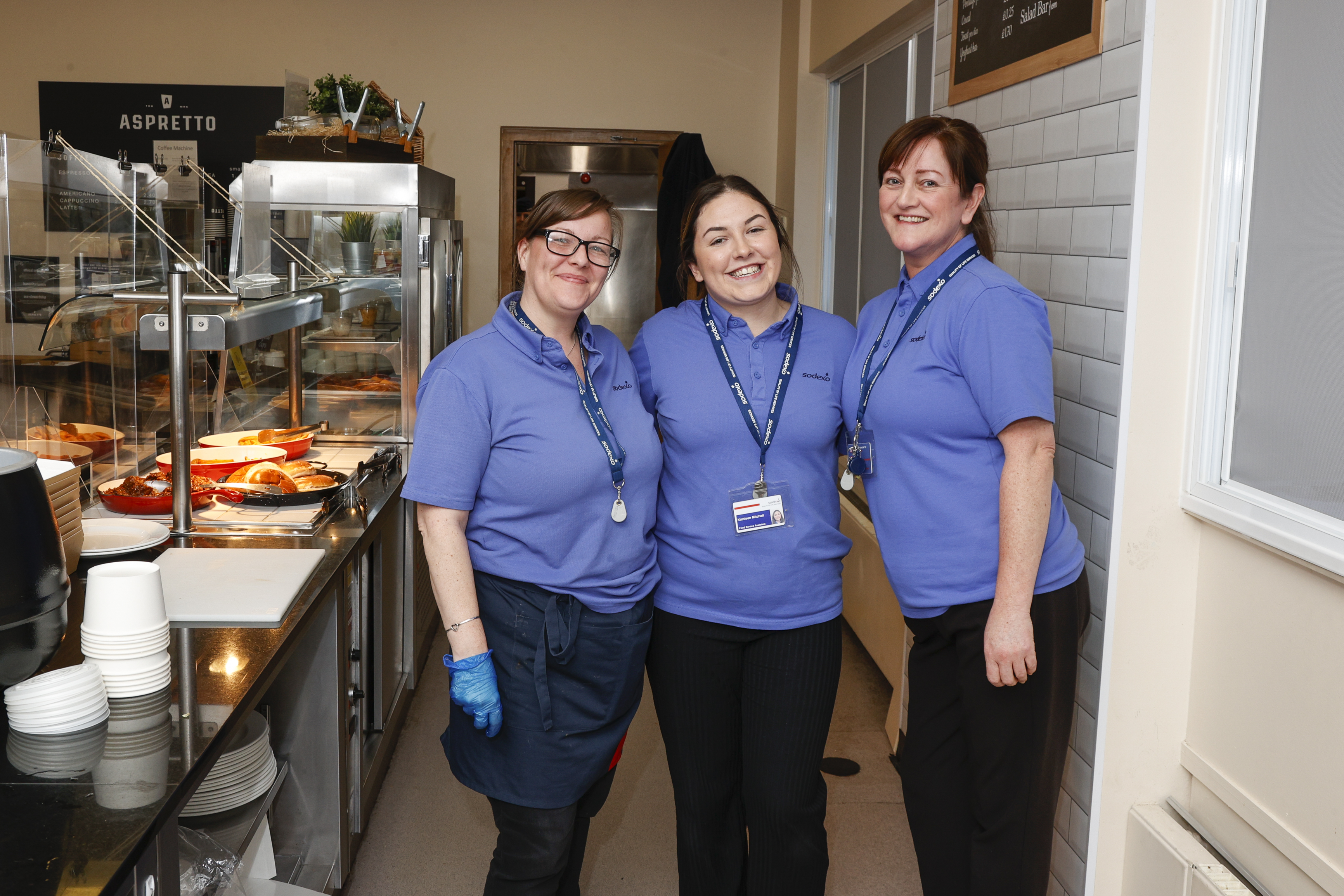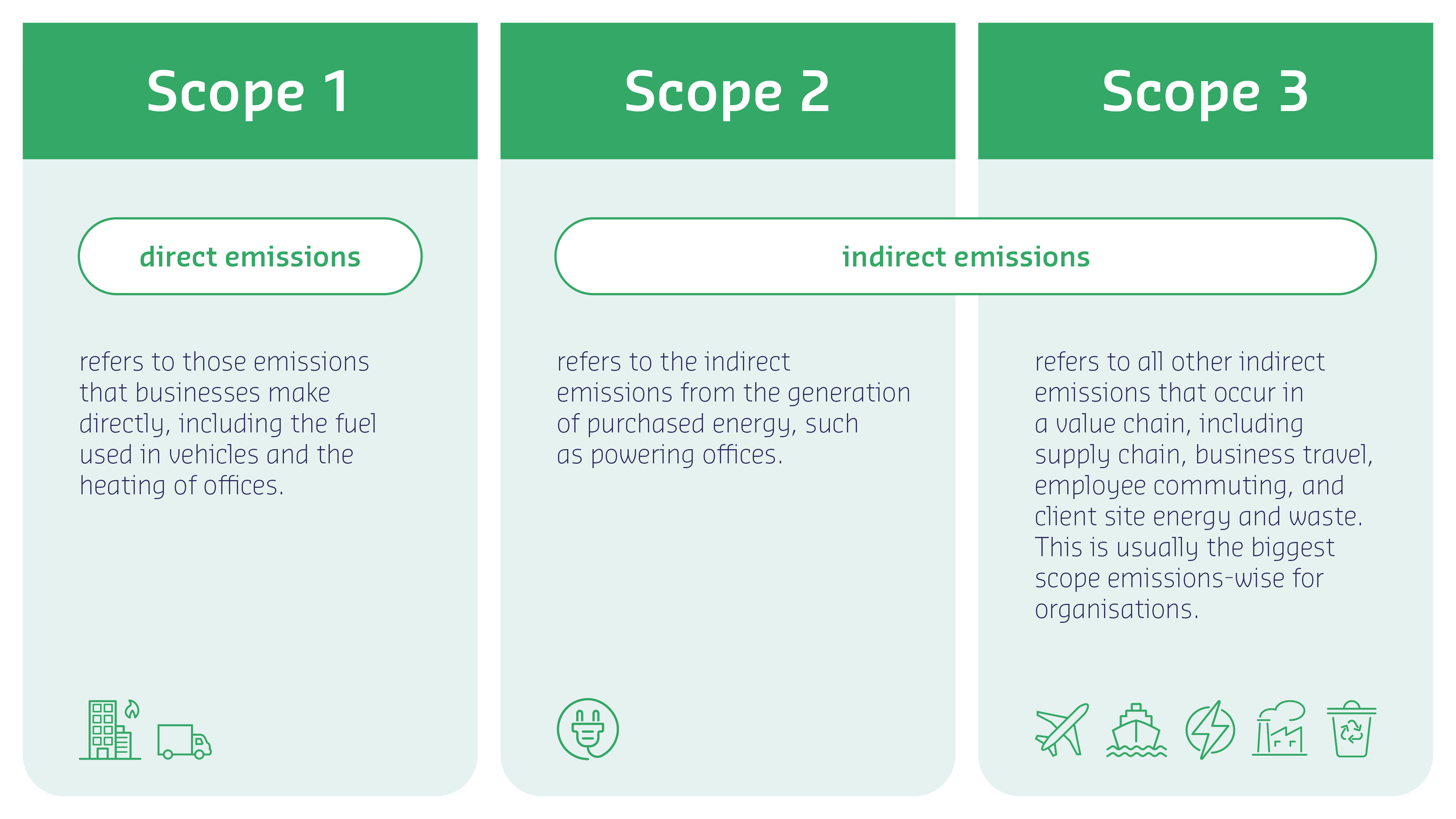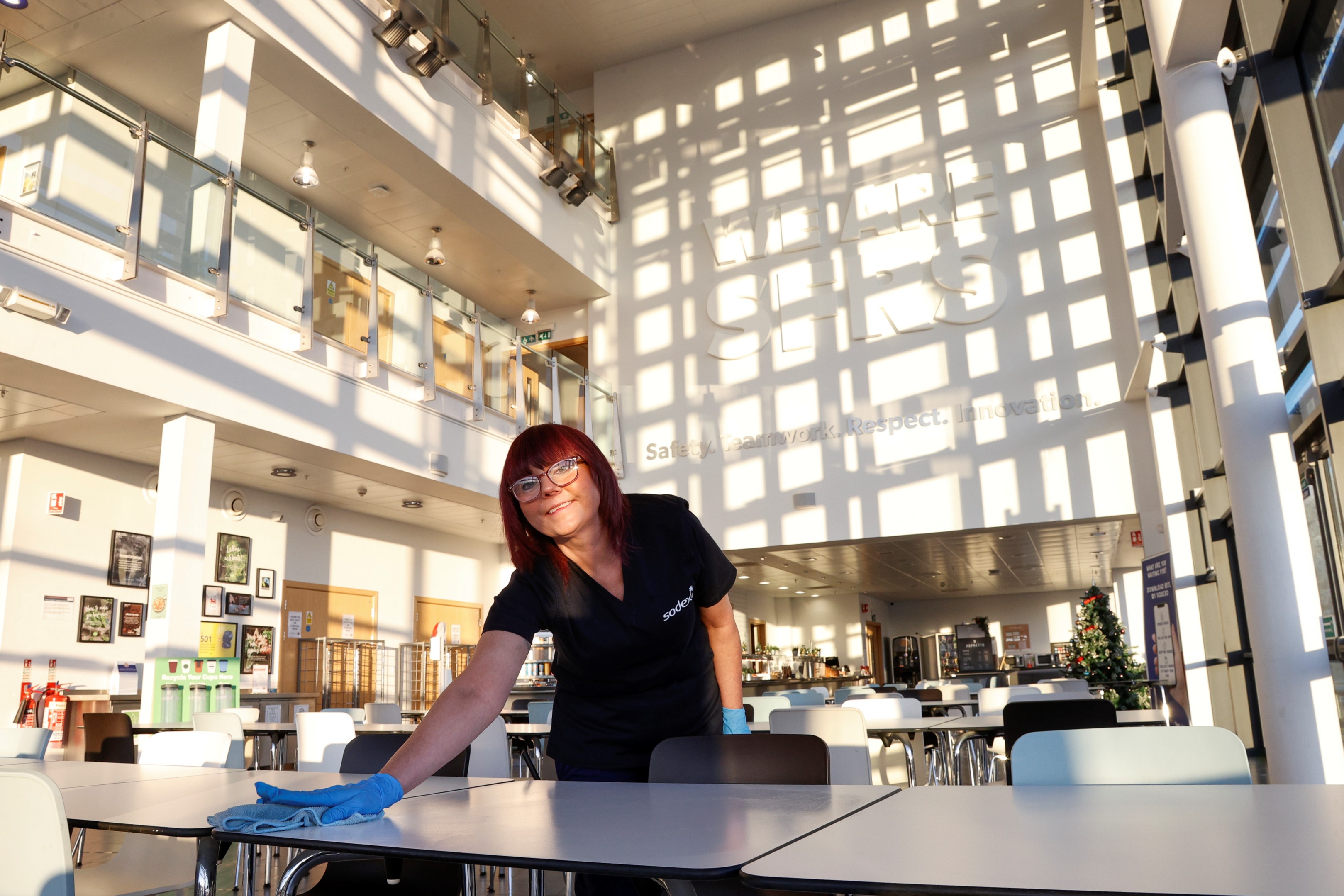We are striving for net zero carbon by 2040. It’s an ambitious commitment with real action behind the words. It’s not just driven from the top-down either; the ideas that will get us there are coming in from colleagues at all levels. Whether it's our chefs at the Scottish Parliament thinking about ‘root to stem’ cooking or how we help Government agencies to reduce plastic waste, making small changes that add up is a natural part of how we work.
Making a positive impact
 Every day, we deliver quality of life services to millions of people around the world. Whether we’re cooking food, cleaning offices or providing a warm welcome, our services all come with social value baked in. That’s because we were founded to do good business in a good way.
Every day, we deliver quality of life services to millions of people around the world. Whether we’re cooking food, cleaning offices or providing a warm welcome, our services all come with social value baked in. That’s because we were founded to do good business in a good way.
This sense of responsibility has shaped our culture and our values since 1966, which in turn makes our colleagues great innovators. That’s just as well, as getting to net zero carbon will take every idea we’ve got. Helping our Government customers to reduce their emissions is part and parcel of this work, and it's why around a third of their menu options are now plant-based.
Understanding the challenge
Operating sustainably is our mission, and delivering on it means collecting the right data, setting robust targets, improving our processes and monitoring our performance. This is particularly true when it comes to our carbon footprint, because reducing emissions is complex work.
We’re on track to be carbon neutral in our direct operations by 2025, and we’re targeting 2040 to be net zero across Scopes 1, 2 and 3. In 2022, we became one of the first global companies to have our decarbonisation commitments validated by the Science Based Targets initiative.

This follows extensive analysis of what we do and where, including in one of the most carbon-intensive aspects of our business: food.
Tackling food waste
Global food production and distribution accounts for more than a third of the greenhouse gas emissions, yet much of that food will be wasted. In fact, if food waste was a country, it would rank as the third largest carbon emitter in the world after the US and China.
That’s why the produce we choose, the recipes we create and the techniques we employ are all carefully designed to cut waste and reduce emissions. Even the smallest change can move the needle significantly, as Sodexo serves a million meals a day.
Here’s a flavour of what we’re doing:
- Implementing WasteWatch by Leanpath to help measure and reduce food waste
- Sourcing local produce and creating seasonal menus to cut down food miles
- Cooking ‘root to stem’ wherever possible
- Distributing surplus food to local foodbanks where we can
- Providing clear information to our customers so we can report on progress transparently
We also celebrate success through our annual 'chef of the year' awards. Ross Hamilton, the Chef Manager at the Scottish Fire and Rescue Service (SFRS), won a bronze medal for creating a three-course meal from sustainable 'Future 50 Foods' and repurposing anything left over.
These initiatives, and many more, are all part of reaching our 2025 target of a 50% reduction in food waste.
Searching for solutions
 When we think about waste, it’s not just waste food that we consider. We look at all kinds, however it’s generated, and search for ways to reduce it. Take plastic, for example. We’re moving to 100% reusable, recyclable or compostable packaging so we can step away from single-use and trialling a new approach to customer waste collection.
When we think about waste, it’s not just waste food that we consider. We look at all kinds, however it’s generated, and search for ways to reduce it. Take plastic, for example. We’re moving to 100% reusable, recyclable or compostable packaging so we can step away from single-use and trialling a new approach to customer waste collection.
Collecting waste from thousands of sites requires a huge number of rubbish bags. At Transport for London, we’ve saved 75kg of plastic and 306 kg of CO2 by moving to a continuous bag system called ‘Longopac’. The material is stronger than standard bags, which is good for our team. It’s also thinner, which means less plastic, and it’s got far more recycled content. And by using recycled cable ties to tie off exactly the amount that’s needed, you’re not forced to use a whole bag for a small amount of waste.
Encouraging local innovation
We’re improving processes like these all the time at a national level, yet many of our solutions start out with our colleagues.
Mark Wright, one of our head chefs, was concerned about the number of plastic chopping boards his team were having to discard. Damaged boards pose a hygiene risk as they trap bacteria, and they create a safety risk too as it’s easier for knives to slip. He wondered if there was a way to reuse them, so we searched for a solution together and now work with a company called Nella across all our Government contracts. Nella collect, resurface and return our used chopping boards, turning any left-over plastic into pellets that can be reused again.
Co-creating with our customers
Our teams go out of their way to collaborate with customers, whether that’s helping them with their own emissions calculations or supporting a more circular economy.
At the Scottish Parliament, for example, we’ve aligned what we report and when to their requirements. This means providing accurate Scope 3 data from across our full supply chain. We’ve also given demonstrations on waste reduction and choose to source meat locally from Campbell Brothers, who are big supporters of ‘nose to tail’ eating. Even the on-site apple trees have been pressed into service; we collected the fruit and gave it to Lanarkshire Larder who then turned it into chutneys for MSPs to sample on tasting days.
Checking progress all the way
We use a range of tools to help us stay on track and inspire further action, ranging from compliance audits and awards schemes to clear training guides. For example, we created a short waste audit for use by cleaning supervisors at the Scottish Fire and Rescue Service. We then reviewed the findings with the client and our waste collection partner and have now improved the signage at more than 20 sites.
Thinking about sustainability is just part of how we work, and it’s one of the ways we add value for our customers. Our Appetite for Action food waste campaign shows our willingness to work in new ways - and with new partners - in order to make a difference.
Our work isn’t finished by any means, but we’re committed to leading the way.
Government Agencies
.png)